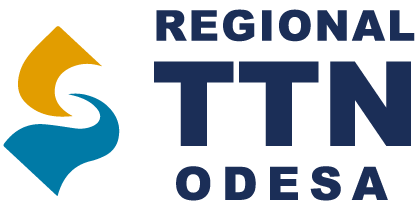A breakthrough in medicine? Ukrainians figured out how to speed up clinical trials of drugs
 Ukrainian engineers have developed a concept for a digital platform that can significantly reduce the time for clinical trials of new drugs.
Ukrainian engineers have developed a concept for a digital platform that can significantly reduce the time for clinical trials of new drugs.
In 1954, the German pharmaceutical company Chemie Grünenthal developed an anti-seizure drug called Thalidomide. During the tests, they found its hypnotic and sedative effect, so they decided to release it as a sedative. In the 50s and 60s, clinical trials (CIs) were optional and were not regulated by standards or laws. Then it was believed that drugs are safe if successfully tested on laboratory rats and mice.
It is necessary to test the drug in humans and how to do it, the pharmaceutical companies themselves decided. Grünenthal tested the effects of thalidomide on only a few volunteers and did not show any side effects. And in 1956, the German authorities approved Thalidomide, including for pregnant women. Pregnant women were also prescribed it en masse for toxicosis and insomnia.
By 1960, the drugs were sold under 37 different names in 46 countries, in one of which the drug was not further investigated. At the same time, the popularity of the “miracle cure” for anxiety was amazing: demand was inferior only to modern aspirin. As a result, 40,000 people who took thalidomide suffered peripheral nerve damage and more than 12,000 babies were born with severe limb, ear and eye defects. Half of them died, half were disabled.
The thalidomide disaster has become a point of no return. It has become apparent that comprehensive and systemic testing of human responses is necessary to save thousands of lives. Immediately after this tragedy, international CA protocols were developed and made mandatory for all pharmaceutical companies in the world.
For more than 60 years, CD has remained the only way to determine the efficacy and safety of a new drug or to discover other therapeutic properties of existing ones. Since, for example, the process of how a drug enters the bloodstream, is distributed in and out of the body, in humans it differs from all species of animals, even from primates.
It is important that clinical trials are carried out only after preclinical tests, that is, tests on biological models (in vitro) and animals (in vivo). Also, the CD must be approved by the ethics committee and the health authority of the country where the study is planned.
The main problems of clinical trials
The aim of a clinical trial is to test all side effects and the immune response of a given substance. They are carried out according to the approved plan – the protocol. The test consists of four phases. The first three pass before the drug is taken by the relevant organ, and the last one is carried out after that.
The last stage is called post-marketing or post-registration, and its purpose is to further study the differences between new drugs from a specific pharmaceutical group and further test the properties. For example, reactions with other pills or food. Based on its results, the safety and effect of drugs can be reviewed.
At the first stage of the CD, the drug is tested on 20-100 healthy volunteers, at the second – on several hundred people with diseases, and the most ambitious is the third phase. It is attended by thousands of patients with specific diseases who are targeted by the drug, often from different countries. It is this stage of CD that is most often carried out in Ukraine.
At the same time, less than 30% of all initiated studies reach 3 phases and less than 15% receive approval and market entry. Why is that?
First, it takes a long time. The study of how a new drug acts on a person takes an average of 6-7 years. Only phase 3 lasts about 3 years. And from the moment of the beginning of testing a drug in a cell, it takes 10-12 years to fully enter the market.
Secondly, it is expensive. In the United States, it has been estimated that the average cost of Phase 1-3 clinical trials in therapeutic areas is about $ 4, $ 13, and $ 20,000,000. Research on potentially new drugs approved by the Food and Drug Administration (FDA) averages $ 41,117 per patient.
Third, it is difficult to attract patients, collect and process data. The latter affect the accuracy and efficiency of CI. In case of data mismatch, different reactions, violations of the CD protocol, the drug will not be approved and the research must be started from the beginning.
What Ukrainian engineers have come up with and how it can change the global pharmaceutical industry
A team of Ukrainian engineers from GlobalLogic in Kharkiv came up with a way to reduce the time of CA by making them more accurate. They developed a concept for a platform that works as a unified KD ecosystem. It can quickly and inexpensively connect programs, devices and applications for processing research data. The system provides instant communication between all its participants: center, patient, doctor and sponsor.
The platform includes a Pillbox that monitors the correct intake of the drug. The box opens only when the subject needs to take a pill and blocks access at any other time. After that, it transfers information to the researchers about who, when and what drugs took. A special mobile application-assistant monitors the patient’s body temperature, pulse and pressure for objective screening of reactions to the drug. The system immediately transmits information to the doctor, who monitors the effect of the drug in almost real time.
It is important that all information about patients, and CD in general, is stored in “private” cloud storage, which provides encryption and anonymization of data according to the latest standards. They can neither be stolen nor lost.
The platform can be used for clinical trials of any scale and at any stage. It is especially effective in the third phase, since it provides for the participation of about three thousand people from different countries. The program quickly collects, analyzes and transmits data, allows you to monitor and control the CI process almost online. The system will enforce the protocols and record any violations. After all, the subjects themselves often take a frivolous approach to the experiment process: they take the drug in the wrong doses or go off schedule. All this influences the results of the study and it is often necessary to start a long and expensive process from the beginning.
The development even solves the problem of finding subjects, because up to 80% of clinical trials are postponed due to difficulties in recruiting patients. The innovation of engineers from Kharkov will provide automatic electronic selection of participants and their control. It will also help you choose the right medical facilities for the CD.
Digital technologies have been used in clinical trials for a long time. For example, digital solutions such as electronic consent, electronic data collection, and electronic evaluation of clinical outcomes help in enrolling and recruiting patients from different countries. And Deloitte calls artificial intelligence the future of CA.
Ukrainian development will allow combining technological solutions, including those based on AI, into a single ecosystem. She will be able to collect, process data and monitor the implementation of plans in one place. This will significantly reduce research time and costs by quickly obtaining reliable data. As a result, this will make the world pharmaceuticals effective.
Source: nv.ua











